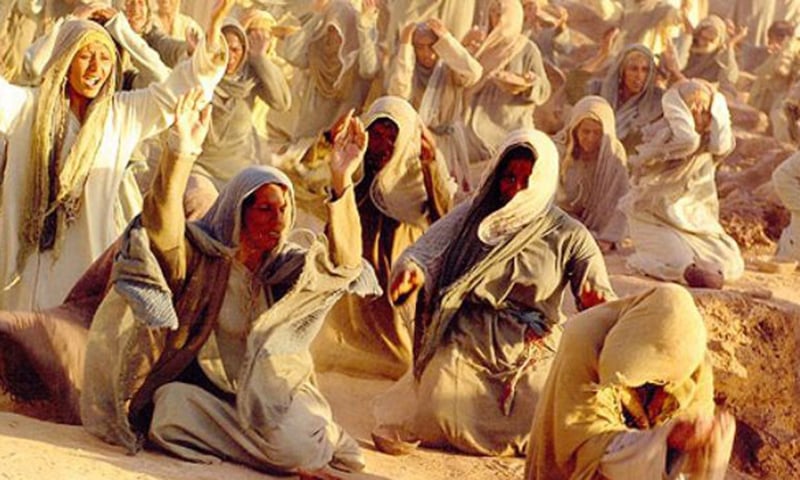TEHRAN: Iran's most expensive film — a biopic of Prophet Mohammed (PBUH) – is scheduled to have its world premiere in Tehran on Sunday amid some doubts that the screening will take place.
The Iranian Film Daily (IFD) had earlier reported the last-moment cancellation of the premiere of "Muhammad, Messenger of God" at Tehran's Fajr International Film Festival which is sponsored by the Iranian government.
|
However, after speculations that the 'last-minute cancellation' was over reservations regarding the representability of the Prophet (PBUH), an IFD report said the uncertainty surrounding the showing of “Muhammad” is likely due to technical difficulties with the film itself.
According to a report in the Guardian, the film be shown out of competition in respect for the Prophet (PBUH). Made by Majid Majidi, described by the report as a leading pro-establishment Iranian director who has worked for more than five years the Iranian film is the second big-budget feature made about the Prophet (PBUH).
The face of the Prophet (PBUH) will not be shown on screen, with Italian cinematographer, the Oscar-winner Vittorio Storaro having employed various combinations of light and darkness to make religious depictions in the film possible.
The Message, made by Moustapha Akkad in 1976, sparked controversy despite not showing the Prophet (PBUH) on screen to avoid hurting Muslim sensitivities.
Majidi in an interview has said Akkad’s biopic failed to do justice to the life of the Prophet (PBUH) by showing “only Jihad and war” and only showing “the image of Islam in that film is the image of a sword”.
The new film is the first part of a trilogy about the Prophet’s (PBUH) life, and tells the story from his birth to the age of 12, ending with his first visit to Syria where Bahira, a Christian monk, is believed to have predicted he would one day become a prophet.
Iran is looking to a large international release in March, in the English- and Arabic-speaking worlds. The country, with a Shia majority population, has been a vocal critic of the Prophet's (PBUH) portrayal, especially in light of Charlie Hebdo's most recent controversial cartoon.
Many Muslims object to any representation of Allah or the Prophet (PBUH), or to irreverent treatment of the Holy Quran, with some incidents to this effect having inflamed protests in the past, sometimes violent. Al-Qaeda-linked attackers in Paris last month gunned down 12 people, including cartoonists, at satrirical magazine Charlie Hebdo's headquarters over what they said was a blasphemous illustration of the Prophet (PBUH).
In a press conference last month, Majidi tried to allay fears of a backlash, saying he had consulted both Shia and Sunni scholars from across the Muslim world before making the film.
“We chose a period of his life about which there is no difference between different Shia and Sunni scholars and groups,” he said. “We made this film with the view of bringing unity [to] the Muslim world.”
Majidi said he wanted to present the right image of Islam to the world. “The world’s perception of Islam today does not match with the beauties of Islam.”
Al-Azhar University in Egypt has asked Iran not to show the film, while Qatar has announced a rival plan for a film about the Prophet (PBUH), with a budget of $1bn (£660m) and backed by likes of the Lord of the Rings producer Barrie Osborne.












































